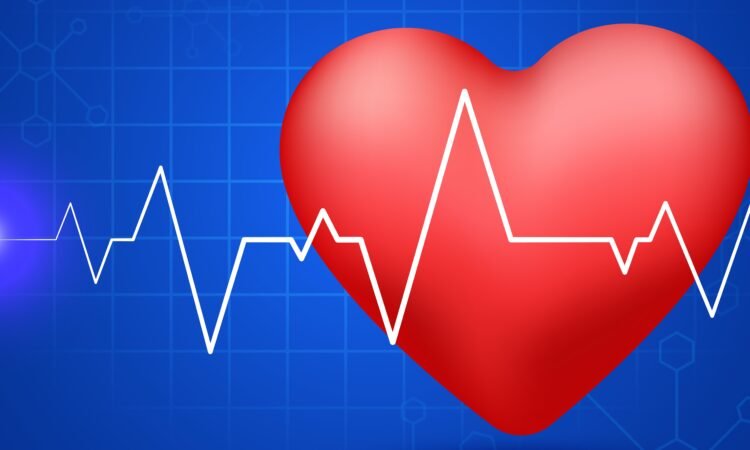
I can offer some general information. If you’re experiencing sudden, fast heartbeats (also known as palpitations), it’s important to consult a healthcare professional for proper advice and diagnosis. This could be a sign of an underlying medical condition that requires professional evaluation and treatment. That said, here are some potential reasons for sudden fast heartbeats and some home remedies that might help calm your heart rate:
Reasons for Sudden Fast Heartbeats:
1. Stress and Anxiety: High stress levels or anxiety can lead to an increased heart rate.
2. Caffeine or Stimulant Intake: Excessive caffeine or stimulant consumption can cause palpitations.
3. Dehydration: Inadequate hydration can lead to electrolyte imbalances, potentially affecting your heart rate.
4. Lack of Sleep: Sleep deprivation can contribute to heart rate irregularities.
5. Physical Exertion: Intense exercise or exertion can temporarily raise heart rate.
6. Thyroid Issues: Hyperthyroidism (an overactive thyroid gland) can lead to rapid heart rate.
7. Medication Side Effects: Some medications can cause palpitations as a side effect.
8. Nicotine or Tobacco Use: Smoking and other forms of nicotine can lead to increased heart rate.
Home Remedies for Calming Heart Rate:
1. Deep Breathing: Practice slow, deep breaths to help relax your body and slow your heart rate. Inhale deeply through your nose, hold for a few seconds, and exhale slowly through your mouth.
2. Stay Hydrated: Drink water to ensure proper hydration, which helps maintain electrolyte balance.
3. Avoid Stimulants: Steer clear of caffeine, nicotine, and other stimulants that can elevate heart rate.
4. Relaxation Techniques: Engage in activities like meditation, progressive muscle relaxation, or yoga to reduce stress and anxiety.
5. Cold Water Splash: Splash your face with cold water to stimulate the vagus nerve, which can help regulate heart rate.
6. Vagal Maneuvers: Techniques like bearing down as if having a bowel movement or coughing forcefully can help regulate heart rate.
7. Warm Herbal Tea: Chamomile or peppermint tea may have calming effects.
8. Valsalva Maneuver: Close your mouth, pinch your nose, and try to exhale forcibly. This can stimulate the vagus nerve and regulate heart rate.
9. Aromatherapy: Some scents, like lavender or bergamot, are believed to have calming effects.
10. Rest and Relaxation: Lie down in a comfortable position and try to relax your body.
11. Avoid Triggers: Identify and avoid triggers that you suspect may be causing the rapid heart rate.
12. Maintain a Regular Sleep Schedule: Ensure you get enough restful sleep each night.
Remember, if you experience severe or prolonged symptoms, or if you have any underlying health conditions, it’s crucial to seek immediate medical attention. Always consult a healthcare professional for personalized advice and treatment.
In a medical emergency, healthcare professionals may administer medications like:
1. Adenosine: This medication is used in certain types of abnormal heart rhythms (supraventricular tachycardias) to help restore a normal heart rate.
2. Beta-Blockers: These medications, such as metoprolol or propranolol, can help slow down the heart rate and reduce blood pressure. They are used for various heart conditions.
3. Calcium Channel Blockers: Drugs like diltiazem or verapamil can help regulate heart rate and rhythm.
4. Antiarrhythmics: Depending on the specific type of abnormal rhythm, medications like amiodarone, flecainide, or propafenone may be used.
5. Digoxin: This medication can help control heart rate, especially in cases of atrial fibrillation or atrial flutter.
6. Sedatives or Anxiolytics: In some cases, if the rapid heart rate is due to anxiety or panic, a sedative or anxiolytic may be administered to help calm the patient.
Remember, only a healthcare professional can determine the appropriate medication based on the specific diagnosis and individual circumstances. Do not attempt to self-administer any medication without proper medical guidance. If you or someone you know is experiencing a rapid heart rate, seek immediate medical attention.




